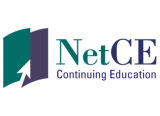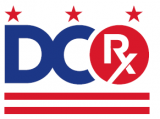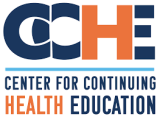Medical Ethics for Physicians

Medical ethics, also known as bioethics, is an amalgam of medicine, law, and religion. It is also influenced by cultural beliefs. In this course, we will define the most common ethical principles and note their relationship to the basic theories of ethics.
Category
Format
- Self-study / Enduring
Credits
- 5.00 AMA PRA Category 1 Credit™
Solving for Physician Burnout - System Redesign and Organizational Transformation

Physician burnout has grown dramatically in recent years with about half of physicians experiencing at least one measure of burnout. In years past, the remedy has been on self-care and resiliency.
Category
Format
- Self-study / Enduring
Credits
- 1.00 MOC II
- 1.00 AMA PRA Category 1 Credit™
Forgone Care among LGBTQ and Non-LGBTQ Americans during the COVID-19 Pandemic: The Role of Health, Social Support, and Pandemic-Related Stress

This study emphasizes healthcare access of lesbian, gay, bisexual, transgender, queer plus (LGBTQ+) and non-LGBTQ+ individuals during the COVID-19 pandemic by assessing potential risk factors for delayed care, including pandemic-related stress, health status, and LGB
Category
Format
- Journal
Credits
- 1.00 AMA PRA Category 1 Credit™
HSC Center for Older Adults: 2023-25 Telemedicine: Addressing Barriers for Special Populations

Telemedicine visits for older adults and younger people with disabilities will differ based on sites such as in the general community, independent living communities, assisted living, memory care communities, and skilled nursing facilities.
Category
Format
- Self-study / Enduring
Credits
- 1.00 ACPE Pharmacy
- 1.00 AMA PRA Category 1 Credit™
- 1.00 ANCC
- 1.00 AOA Category 1-B
- 1.00 Association of Social Work Boards (ASWB)
How to Taper Patients Off of Chronic Opioid Therapy

Internet Enduring Material Sponsored by the Stanford University School of Medicine. Presented by the Department of Psychiatry and Behavioral Sciences at Stanford University School of Medicine
Category
Format
- Self-study / Enduring
Credits
- 1.25 AMA PRA Category 1 Credit™
The Collaborative Care Model: How To Integrate Behavioral Health Into Your Practice

This course presents providers with evidence-based information and tools to integrate behavioral health care skills into their practice using the Collaborative Care Model.
Category
Format
- Self-study / Enduring
Credits
- 1.00 ACPE Pharmacy
- 1.00 AMA PRA Category 1 Credit™
Telehealth Crisis Management

This course reduces risk and provides education and competency to meet regulatory and licensure requirements for practitioners providing Telehealth services to patients who may have a crisis at a distance.
Category
Format
- Self-study / Enduring
Credits
- 1.75 AMA PRA Category 1 Credit™
Creating a Successful EHR that Physicians Enjoy Using

Electronic Health Records (EHRs) are often implicated as a major cause of physician burnout despite the promise that they would improve care and increase efficiencies. Learn what the root causes are that lead to physician frustration and dissatisfaction with their EHR and gain an understanding o
Category
Format
- Self-study / Enduring
Credits
- 1.00 MOC II
- 1.00 AMA PRA Category 1 Credit™
Opioid Prescriber Training Program
The purpose of the New York State (NYS) Prescription Drug Overdose (PDO) Prevention Program is to advance and evaluate comprehensive state-level interventions for preventing prescription drug overuse, misuse, abuse, and overdose.
Category
Format
- Self-study / Enduring
Credits
- 2.00 AMA PRA Category 1 Credit™
NON-OPIOID AND ALTERNATIVE APPROACHES TO PAIN

This module summarizes evidence on the use of exercise, acupuncture, spinal manipulative therapies, herbs, dietary supplements and other complementary approaches for pain. Discusses how to use NSAIDs most effectively to treat pain and prevent acute pain from becoming chronic pain.
Category
Format
- Self-study / Enduring
Credits
- 1.50 AMA PRA Category 1 Credit™

 Facebook
Facebook Twitter
Twitter LinkedIn
LinkedIn Forward
Forward